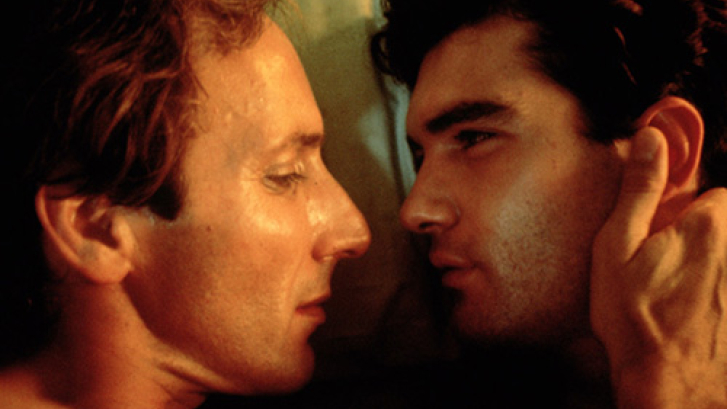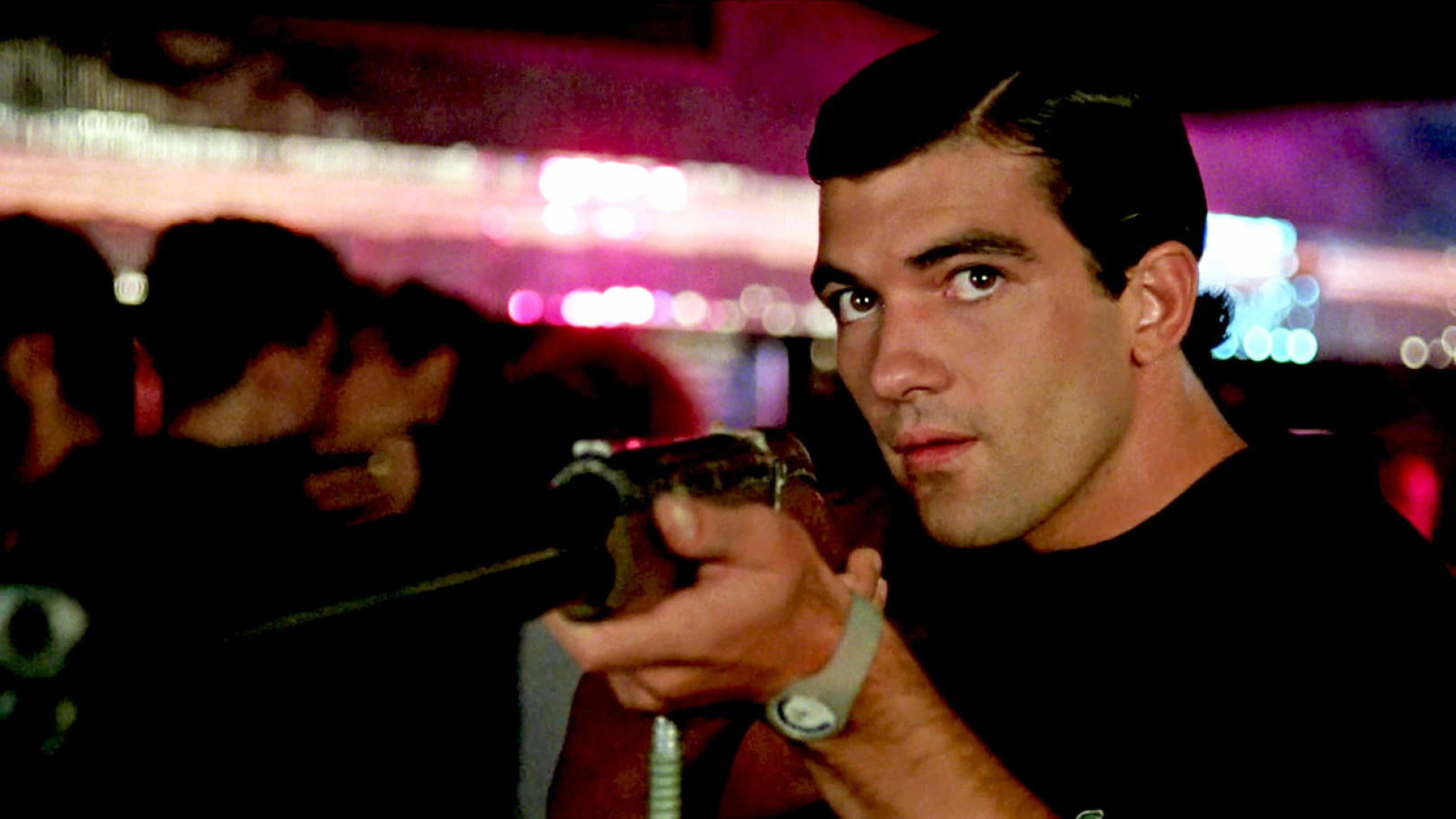La ley del deseo

Pablo and Tina are brothers. Their parents separated while the two boys were still young. Tina's real name is Tino, but when he moved in with his father, he started to have a sexual relationship with him, changed his sex and became his father's lover. A few years later her father leaves her and Tina no longer feels attracted to men... from now on she hates them.
Pablo writes film scripts and makes films. He is in love with Juan, a charming boy who returns Pablo's love. Unlike his sister, however, Pablo does not suffer at all and tries to overcome his problems through creative activity. [...] During the holidays, Juan goes back to his home town. […]
Pablo becomes acquainted with Antonio, a boy from southern Andalusia who is completely different from Juan. Within a matter of hours Antonio is passionately in love with Pablo. […] Antonio also goes off on holiday. When he says farewell to Pablo, he asks him to use a girl's name when he writes to avoid arousing his parents' suspicion.
At this time, Pablo is completely engrossed in writing his latest script. The main female character is greatly inspired by his sister. So when Pablo writes to Antonio, he uses his sister's name: Laura P.
Pedro Almodóvar was awarded with the very first TEDDY AWARD for best feature film in 1987.
details
-
Runtime
100 min -
Country
Spain -
Year of Presentation
1987 -
Year of Production
1986 -
Director
Pedro Almodóvar -
Cast
Eusebio Poncela, Carmen Maura, Antonio Banderas, Miguel Molina, Fernando Guillén, Manuela Velasco, Nacho Martinez -
Production Company
El Deseo Film S.A.; Larenfilm -
Berlinale Section
Panorama -
Berlinale Category
Feature Film -
Teddy Award Winner
Best Feature Film
pictures from the movie

Biography Pedro Almodóvar
The most internationally acclaimed Spanish filmmaker since Luis Buñuel was born in a small town (Calzada de Calatrava) in the impoverished Spanish region of La Mancha. He arrived in Madrid in 1968, and survived by selling used items in the flea-market called El Rastro. Almodóvar couldn't study filmmaking because he didn't have the money to afford it. Besides, the filmmaking schools were closed in early 70s by Franco's government. Instead, he found a job in the Spanish phone company and saved his salary to buy a Super 8 camera. From 1972 to 1978, he devoted himself to make short films with the help of of his friends. The "premieres" of those early films were famous in the rapidly growing world of the Spanish counter-culture. In few years, Almodóvar became a star of "La Movida", the pop cultural movement of late 70s Madrid. His first feature film, Pepi, Luci, Bom und der Rest der Bande (1980), was made in 16 mm and blown-up to 35 mm for public release. In 1987, he and his brother Agustín Almodóvar established their own production company: El Deseo, S. A. The "Almodóvar phenomenon" has reached all over the world, making his films very popular in many countries.
Filmography Pedro Almodóvar
1980 Pepi, Luci, Bom und der Rest der Bande | 1982 Labyrinth der Leidenschaften | 1983 Das Kloster zum heiligen Wahnsinn (as Pedro Almodovar) | 1984 Womit habe ich das verdient? (as Pedro Almodovar) | 1986 Matador | 1988 Frauen am Rande des Nervenzusammenbruchs | 1989 Feßle mich! | 1991 Die Waffen einer Frau | 1993 Kika | 1995 Mein blühendes Geheimnis | 1997 Live Flesh - Mit Haut und Haar (as Pedro Almodovar) | 1999 Alles über meine Mutter | 2002 Sprich mit ihr | 2004 La Mala Educación - Schlechte Erziehung | 2006 Volver - Zurückkehren | 2009 Zerrissene Umarmungen | 2009 Zerrissene Umarmungen | 2011 Die Haut, in der ich wohne | 2013 Fliegende Liebende | 2016 Julieta | 2019 Leid und Herrlichkeit | 2020 The Human Voice